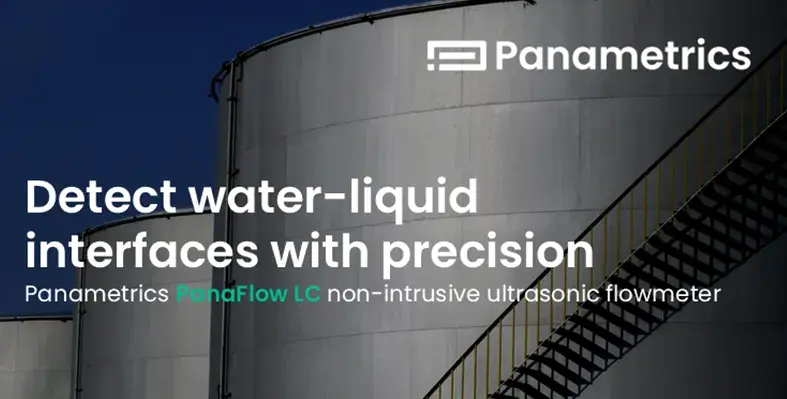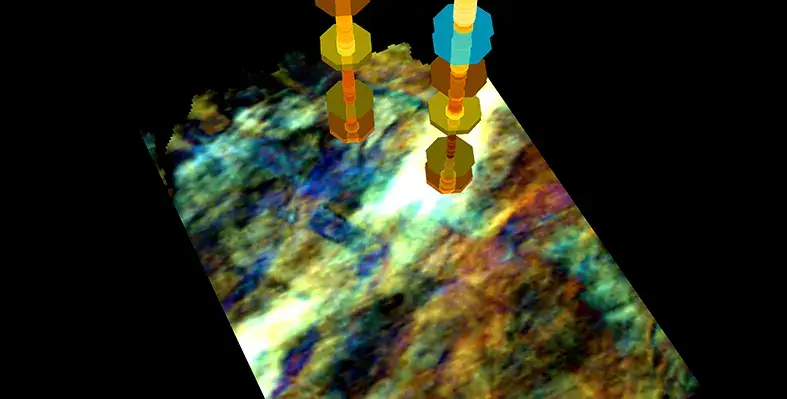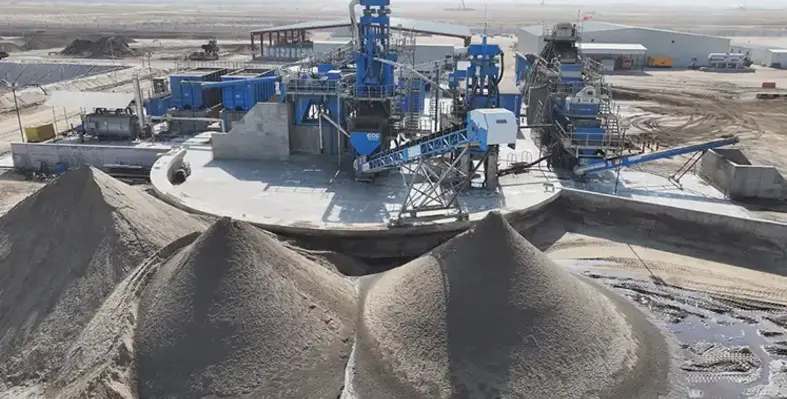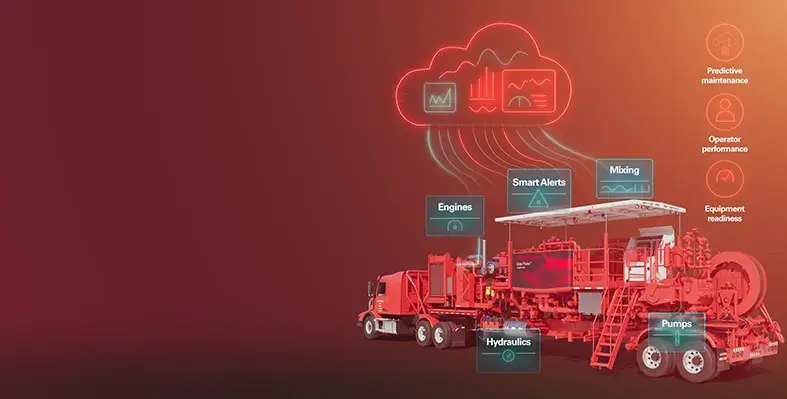Panametrics offers a safe, cost-effective and reliable ultrasonic transit time solution for hydrocarbon liquid tank dewatering
This non-intrusive technology uses the velocity of sound in the fluid and the meter signal strength standard deviation to ensure accurate and efficient performance.
Storage tanks for liquid hydrocarbons may contain residual (sometimes salty) water, originating from crude oil that has not been fully separated. Additionally, other liquid hydrocarbons may become contaminated due to improper venting or leaks from the floating roof, a damaged rainwater hose, or various other reasons.
Since water and liquid hydrocarbons have different densities and velocities of sound, water will settle at the bottom of the tank, often accompanied by bacterial decomposition of the petroleum product. To maintain product specifications, water must be avoided during further processing or in finished products.
Tank dewatering at the outlet is essential to detect the water and liquid interface. To achieve this, various methods are available, including: conductivity (the most common solution), capacity, microwave or gamma source techniques. However, most of these solutions require protrusion making them susceptible to probe build-up which can lead to reliability issues and frequent, costly maintenance or safety hazards when using gamma source.
Using the Panametrics ultrasonic transit-time method, operators can detect the fluid changes by monitoring variations in the fluid’s speed of sound and increases in the signal strength’s standard deviation due to emulsions. This solution is reliable, cost-effective, maintenance-free and highly responsive.
As the transducers are mounted outside the pipe, they are not prone to wear and tear over time. By detecting even the slightest changes in the fluid’s velocity of sound and signal strength, the Panametrics solution feeds control logic to pilot control valves. This guides water and contaminated liquid hydrocarbons to the water treatment and slops units, while directing the liquid hydrocarbon to the treatment unit or plant outlet (ships, trains, trucks, pipelines) without wasting time and money due to contaminated products.











